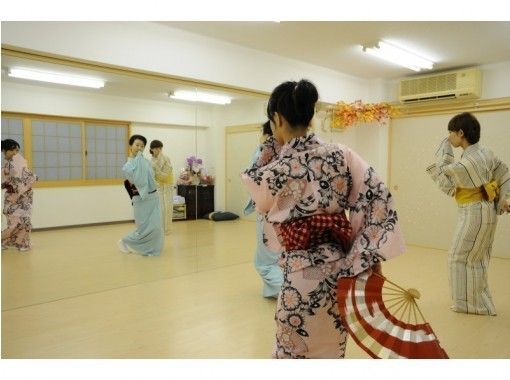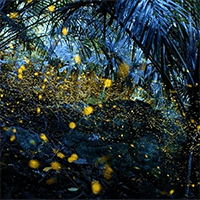Asakusa/Ueno Reservation for Hobby / Cultural experience | Activity Japan
- Age 6~
- 1~2 hours
- 10:00 / 15:30
Look back and enjoy the history of sushi while making colorful and colorful sushi. adult Ki Nigiri Sushi was born in the Edo period and is a fast food for the impatient Edo kid. Before that, sushi was "push paper" or rose paper (flyer paper). Even now across Japan There are still a variety of push-buttons. You will experience the creation of a vivid push-push. You can also enjoy seasonal vegetable dishes and miso soup made from shrimp heads. [Experience content] We will challenge to make a push. [Meals] Oshizushi, miso soup, seasonal vegetable dishes, pickles
- Age 6~Age 75
- 1~2 hours
- 10:00
The most popular Japanese food is the Edo-style handful. Professional craftsmen will guide you in making hand-grips using seasonal fish and vegetables. “Sushi” experience is one of the purposes of traveling in Japan. There are delicious famous sushi restaurants and easy-to-eat sushi restaurants adult Would you like to hold sushi at Kujo Tokyo? What is a famous store Year A sushi chef who has also trained will carefully guide you in making sushi. How about dinner with sushi you grabbed by yourself? It will be an unforgettable memory of your trip to Japan. You can enjoy not only fresh seafood but also vegetable sushi. [Experience] Holding sushi [Meals] Nigiri sushi, soup or miso soup
- Age 20~Age 75
- 2~3 hours
- 11:30
① Learn about sake brewing. Learn about the history of sake and the differences in how it is made. ② Drink and compare three types of sake: sweet, medium-dry, and dry. Enjoy seasonal mini-sized dishes. ③Try new sake cocktails and more. Try new ways to enjoy sake, such as cocktails based on sake ④ Lunch Finally, for lunch, try sake lees-based ``keema curry'' or ``mapo tofu bowl.'' Approximately 2 hours lunch time Please apply for 2 or more people. Due to the arrangement of ingredients (fish), cancellations cannot be made from 4 days in advance.
- Age 7~Age 75
- 1~2 hours
- 10:30
A new basic cooking experience course is born! The basis of Japanese cuisine is dashi, which is made from kelp and bonito flakes. You can use dashi to bake dashimaki eggs or make chawan mushi. After making the soup stock, the bonito flakes and kelp can also be used as ingredients for rice balls. After making the dashi and cooking it, enjoy your lunch with miso soup made with the freshly made dashi. Vegan options are also available. Please contact us. Operated by 2 or more participants.
- Age 6~
- 1~2 hours
- 13:30
After practicing the “food” character with basic calligraphy such as dots, stops, and payments, select the character you want to write. After receiving the certificate of completion, you can enjoy special organically grown tea and seasonal Japanese sweets and water sweets. Feel free to experience calligraphy. After practicing basic characters, write your favorite characters and your name. You can learn the difference between 硯, sumi, and brush, and know the origin of kanji and hiragana. After practice, you can enjoy Japanese sweets and fruits that love the season.
- Age 6~
- 1~2 hours
- 13:30
After having your teacher make a traditional tea ceremony in the tea room, move to the counter seat and make your own tea. After that, you will have seasonal Japanese sweets and fruits. The tea ceremony is not only a place to drink tea, but also an opportunity to experience traditional Japanese culture. After enjoying the teacher's tea according to the manner, try making your own tea. [Experience contents] After having a dried confectionery, you will have a cup of tea made by the teacher. Basically a regular customer less Up to 4 people will sit in the tearoom. First-come, first-served basis That more Customers can also experience tea made by another teacher. [More experience] Try making your own tea! Teaching by the teacher and making tea yourself
- Age 6~
- 1~2 hours
- 10:00
Challenge vegan cuisine that is rapidly gaining popularity overseas. Let's make ramen and dumplings. Like Kujo Tokyo, I am particular about the ingredients. The most popular thing that foreign tourists want to eat when they come to Japan is ramen. But for those who want a little bit of animal fat ramen or vegan dishes. Ramen and dumplings are made with vegans that have recently attracted attention for their health, beauty and lifestyle. Can you make really delicious ramen with vegans that do not use eggs, dairy products, or honey, as well as meat and fish? If you drink a bite of soup, the question disappears. You can also enjoy making gyoza. [Experience content] It is you to decide the taste of miso ramen by mixing 3 types of miso and leek oil [Meals] Vegan Miso Ramen, Organic Green Tea
- Age 7~Age 75
- 2~3 hours
- 10:00 / 15:30
The basis of food is “soybean”. Tofu is made from squeezed soymilk after mashing and boiling soybeans. A lot of nutrition remains in the pomace that squeezes plenty of soy beans. Japanese people do not mix fried okara with soup stock and eat tofu as it is, fry it up, make it deep fried, freeze it tofu, etc. I ate protein every day as a soy dish. For Japanese people, miso soup using miso made from soybeans, and cold sushi and tofu dishes with soy sauce made from soybeans are the basic home cooking that is essential. It is a course where you can enjoy the basics of Japanese cuisine by making tofu that can be said to be a synonym for Japanese cuisine and tasting a variety of processed soybean dishes.
- Age 6~
- 1~2 hours
- 09:00 / 10:00 / 11:00 / 13:00 / 14:00 / 15:00
Let's wear a yukata and experience authentic Japanese traditional dance in Asakusa, a district of Tokyo which is the hub of arts! Yoko Namishima - a teacher with over 30 years of experience gives instructions with joy and great attention to each learner. In case of 2 or more participants, she performs a nihonbuyo-dance after the lesson! We are delighted to have everyone from beginners to even those who find hard to wear yukata! Feel free to join us! 【Namishima Yoko Nihon Buyo Class】 ・You can learn about the spirit of harmony and hospitality through the nihonbuyo-dance. ・By easy-to-understand instructions you can learn dancing with an easy mind. ・Lesson held in a perfect environment: a 3-minute walk from the main station and Asakusa district which is the hub of arts. ・Professional instructions are provided by Namishima teacher from traditional and contemporary dances to yukata dressing. Japanese traditional dance "nihon-buyo" is a part of "kabuki" called "shosa-mono" which means movement. Yoko Namishima left Nihon-buyo school and created her own stage performance, and became a representative of「Shin-buyo」which is a new style of dancing. Her concept is to promote the Japanese spirit of harmony and hospitality through the dance and she is involved as an instructor of dancing, sword battling and kimono dressing in performances held all over the country and across the world .
最近チェックしたプラン
Please wait a moment
![[Tokyo ・ Taito-ku] It is a challenge to make "pushed sushi" that looks vividの画像](https://img.activityjapan.com/10/26993/10000002699301_GhwGsT3M_3.jpeg?version=1569917522)
![[Taito-ku, Tokyo] Make the popular "nigiri sushi"! Authentic nigiri sushi experience! Vegan-friendly too!の画像](https://img.activityjapan.com/10/26999/10000002699901_GhwGsT3M_3.jpg?version=1569917549)
![[Taito Ward, Tokyo] Learn about sake!の画像](https://img.activityjapan.com/10/50672/10000005067201_atFOJjl6_3.webp?version=1694481607)
![[Taito-ku, Tokyo] The basics of Japanese food is “dashi” ~ Dashi making ~の画像](https://img.activityjapan.com/10/50671/10000005067101_atFOJjl6_3.webp?version=1694481066)
![[Tokyo ・ Taito Ward] A calligraphy experience filled with the basics of calligraphy! A break with organically grown tea & seasonal sweetsの画像](https://img.activityjapan.com/10/27061/10000002706101_Oo1eOgGf_3.webp?version=1568341887)
![[Tokyo ・ Taito Ward] Feel free to experience the tea ceremony-you can also learn traditional works in the tea roomの画像](https://img.activityjapan.com/10/27059/10000002705901_Oo1eOgGf_3.webp?version=1569917488)
![[Tokyo ・ Taito-ku] Vegan and healthy ramen & dumpling making experience that attracts attentionの画像](https://img.activityjapan.com/10/27058/10000002705801_Oo1eOgGf_3.jpg?version=1570699421)
![[Tokyo ・ Taito Ward] Basic of Japanese food! Japanese food culture experience of "tofu making and soy dishes"の画像](https://img.activityjapan.com/10/26992/10000002699201_GhwGsT3M_3.jpeg?version=1614852306)








